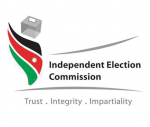You are here
Food sovereignty increases food security
Aug 20,2023 - Last updated at Aug 20,2023
ABIDJAN — If you are looking for an argument in West Africa, try asking which country serves the best jollof. While Senegalese can claim to have invented the popular rice-based dish, Nigerians, Ghanaians and others across the region will fiercely defend their own recipes as the tastiest. But one thing is not in dispute: Much of the rice now used in jollof is grown not by West African farmers, but in India, Thailand and Vietnam.
Rice has been cultivated in Africa for more than 3,000 years, and it is now grown by more than 35 million farmers in 40 countries across the region. After maize, it is Africa’s most important food staple. Yet, Asian rice accounts for over 40 per cent of consumption in the region, making Africa the world’s largest import market for the grain. Though the Senegal River Valley was one of the world’s earliest rice centers, Senegal’s farmers now struggle to compete in the country’s urban centres against imports from India.
This development is symptomatic of a wider loss of food self-reliance in Africa, owing to population growth, urbanisation, and an expanding middle class’s increased demand for food. While smallholder farming and rural livelihoods still account for over half of employment on the continent, African farmers have been pushed out of local markets, and the region’s overall food import bill has risen from $7.9 billion in 1993-95 to $43.6 billion in 2018-20.
No region faces a more severe food-security crisis. One in five Africans, some 260 million people, most of them in rural areas, are going hungry. Progress toward the United Nations’ goal of achieving “zero hunger” by 2030 stalled in 2014 and, following the supply-chain disruptions triggered by Russia’s full-scale invasion of Ukraine, has gone into reverse. Sharply rising food import bills are amplifying inflation in a region where food accounts for over 40 per cent of the average consumption basket. Millions of people are being pushed into poverty.
Just as COVID-19 underscored Africa’s urgent need for greater vaccine self-reliance, the war in Ukraine has exposed the vulnerability that comes with dependence on food imports. That vulnerability is the product of a failed development model. Successive generations of political leaders have paid lip service to food self-reliance, while opening the flood gates for imports of “cheap foods”, many of which are heavily subsidised and considered integral to industrialisation. The systematic neglect of smallholder agriculture has created a vicious cycle, weakening urban-rural linkages, trapping farmers in poverty, and leaving urban populations dependent on volatile world markets.
Building a self-reliant food system capable of providing healthy, affordable diets to all will take nothing less than a transformation of agriculture. Current yields are too low either to meet the region’s growing demand for food or to support more resilient rural livelihoods. In Bangladesh, a hectare of farmland produces an average of five tons of rice per harvest, which is more than double the level in Nigeria. Similarly, yields for maize, the main food staple in eastern and southern Africa, are less than half the average for Southeast Asia. Moreover, the yield gap between Africa and Asia has widened over the last 20 years.
Climate change is compounding the problem. We are already witnessing more protracted and intense droughts, less predictable rainfall, floods, and the climate-related spread of pests, like the plague of desert locusts that devastated crops in eastern Africa in 2019. Dependence on rain-fed farming systems is a risk multiplier for Africa. Modeling reported by the International Panel on Climate Change points to potential yield losses in the range of 10-30 per cent for food staples like maize, sorghum and millet.
Many of the policies and technologies needed to close Africa’s yield gap and address climate threats are well-known. CGIAR, the world’s largest global agricultural research organisation, has developed high-yield, climate-resilient and pest-resistant seeds tailored for agro-ecological conditions across Africa. More than two million smallholder farmers are already growing drought-resistant maize varieties, raising their yields by 20-30 per cent.
The African Rice Center has produced more than 80 new rice varieties. These include early-maturing seeds which provide a source of food with higher protein content than standard varieties in the pre-harvest hunger period. Yields are comparable to those in Asia. Evaluations find that farmers, many of them women, adopting these seeds are, in some cases, doubling their income. In Senegal, novel rice varieties are slowly clawing back market share from imported rice, creating new value-chains and rural jobs, and displacing imports used in jollof.
But new seed technologies can realise their full potential only if they are part of an integrated response. Farmers also need access to affordable capital, fertiliser and productive infrastructure like irrigation, energy and extension services. As matters stand, Africa’s farmers, notably women, are poorly served in all these areas. And while the African Union’s Comprehensive Africa Agriculture Development Programme, initiated in 2003, provides a plan of action, it has an abysmal delivery record.
Connecting the dots between food self-reliance and social protection can create win-win scenarios. As the School Meals Coalition points out, millions of African schoolchildren are unable to learn because of hunger. Providing them with nutritious food from local producers would simultaneously combat malnutrition, improve learning and create predictable markets for farmers, attracting the investment needed to raise productivity. The Kenyan government has already set a benchmark, pledging to provide universal school meals by 2030.
At a food summit in Dakar, Senegal, earlier this year, African leaders pledged to build more self-sufficient, resilient and equitable food systems, and to restore “food sovereignty”. While Africa’s farmers have heard such pledges before, let’s hope that this time they will be implemented.
Kevin Watkins, a former CEO of Save the Children UK, is a visiting professor at the Firoz Lalji Institute for Africa at the London School of Economics. Copyright: Project Syndicate, 2023.












